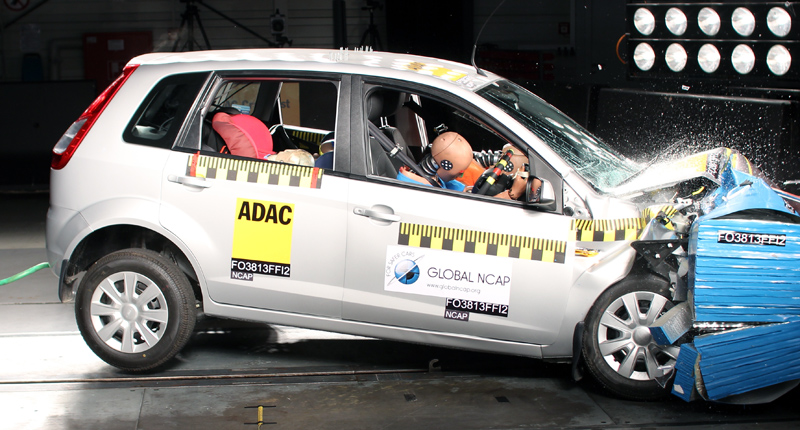Safety. This single word is ostensibly one of the major driving forces behind the global push towards the autonomous car.
The self-driving vehicle, many proponents believe, has the potential to virtually eliminate fatal car crashes. How? Well, such vehicles would effectively render drivers obsolete, thus eradicating the sort of “human error†responsible for so many on-road incidents.
No ad to show here.
In an ideal world (from a safety standpoint, anyway), every single vehicle on a given road network would be of the autonomous variety, connected to both other cars and the relevant road infrastructure. Constant wireless communication between all elements would at best prevent the overwhelming majority of crashes and at worst mitigate the effects of the utterly unavoidable ones.
Thing is, such an ideal is a long way off – particularly for developing countries. While it may take merely a matter of years for rich, developed nations to perfect the technology, build the networks, and amend the necessary legislation, low- and even middle-income countries face far more challenges and thus a potentially unending wait.
Of more immediate concern is the shockingly low level of basic safety still displayed by so many of todayâ€
“This is entirely unacceptable. Manufacturers cannot continue to treat millions of their customers as second-class citizens when it comes to life-saving standards of occupant protection,†Mosley added.
And heâ€
But Global NCAP says the failure of “millions of new cars†to meet the United Nationsâ€
And, in addition, Global NCAP wants all automakers to make a voluntary commitment to applying front and side impact crash test standards to all new cars from 2016, and cease the practice of “de-specification and bundling of safety featuresâ€. Instead, the safety watchdog wants the full range of safety designs and devices to be available in all major markets.
“The drive for the democratisation of car safety must now be extended across all automotive markets worldwide. By 2020 at the latest, we want all new cars to meet basic standards for both crash protection and crash avoidance. They must have crumple zones, airbags, and electronic stability control,†said David Ward, Global NCAP Secretary General.
And the ball has already started rolling. India – that truly massive market in which the Datsun GO scored a big fat zero in Global NCAPâ€
So, sure, from a safety perspective, the potentially life-saving benefits of the autonomous vehicle make it a technology well worth pursuing, even if it takes huge investment from both governments and manufacturers.
But shouldnâ€
